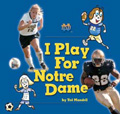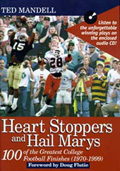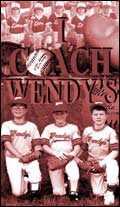 |

OpEd Columns
 |
 |
 |
When You Wish Upon a Falling Satellite (Indianapolis Star 03/08/08)
“Dad, why are we staring up at the sky?”
My six-year old son Riley popped the question as we cuddled on our back
porch for our nightly ritual. Our eyes fixed overhead, we dodged a few
flaky snow flurries.
“Riley, we’re protecting Charlie from falling satellite debris,” I
explained.
Each night since late February when the U.S. destroyed a failing spy
satellite, Riley and I shiver in the winter wind chill, waiting to see
if a portion of the school bus-sized satellite USA193, soars across the
sky and strikes our dog Charlie, a 10-pound schnoodle currently circling
the backyard for a place to poop.
“Dad, what’s a satellite?”
“It’s a piece of equipment that orbits the earth. It bounces
communication signals down to us. Like television shows and long distance
phone calls.”
“What’s orbit?”
“Going around and around in a circle, like Charlie.”
“Dad, why would a satellite fall from the sky?”
“It was broken. So we sent a rocket up into the sky to blow it
up.”
“Why?”
“It has to do with hydrazine fuel tanks re-entering the atmosphere
in tact as opposed to….”
Riley interrupted my broken science explanation.
“So what happened to the TV shows it bounced to earth? Did they
get blown up to?”
“Actually it was a satellite that spies on people. It didn’t
carry any TV shows.”
“I think they should send a rocket and blow up the America’s
Next Top Model satellite. That’s a boring show.”
“Well, it doesn’t really work that way Riley.”
“Would Tyra Banks fall out of the sky and crash into our roof?”
“Uh…maybe.”
“Well, I don’t want Tyra Banks crushing me.”
As I sat there pondering the possibility of Tyra Banks orbiting 150 miles
into the atmosphere, being struck by a missile fired from a U.S. warship,
hurling toward the earth, and flattening my son, I thought, “Hey,
maybe Riley is on to something.”
Maybe we should shoot down more satellites. The ones that transmit odorous
garbage into our daily lives. Like the WhiteBronco32 satellite, launched
in 1994, that carries signals from all local TV news choppers as they
pursue ambulances, police cars, and runaway ex-football stars. It’s
a satellite in decay. We should shoot it down.
Or the Polly Ad satellite, transmitting “I approve this message” ads
from political consultants to ad agencies to TV stations during election
years. We could all benefit from an accurate missile launch targeting
that one.
Or even the RingCell 2000 satellite, sending insidious ring tones to
trendy cell phone owners worldwide. Unnecessary and annoying.
“Dad!” Riley woke me from my utopian dream.
“Dad, why do satellites spy on people?”
“Well, satellites don’t spy on people. They just help us
keep track of people who might hurt us. If we know where the bad guys
are, we can protect ourselves better.”
“How?”
“Well, some satellites have big cameras on them that take pictures.
Some satellites can track tiny chips placed in devices like cars, so
we can always tell where the car is. That’s called a Global Positioning..”
Riley interrupted my impromptu technology lecture. “How do we know
who the bad guys are?”
“Sometimes we don’t know.”
“Dad, that guy who killed those students at that college with a
gun. He was a bad guy.”
“He did a very bad thing.”
“Then why didn’t we spy on him with a satellite?”
“Because we didn’t know he was going to...”
“But he had a bunch of guns. And he walked into that school and
killed all those kids. That’s a bad guy Dad. What if he came to
my school Dad? Couldn’t we see him with the satellite?”
Riley’s suddenly panicked voice left me silent. My eyes stopped
searching for USA193 streaking across the sky, and shifted toward the
dilated pupils of my six-year old.
“Dad, answer me. Can’t we put potato chips inside guns so
if I’m at school and a bad guy comes, we can stop him?”
“Computer chips.”
“Dad, if they can put chips in cars, why not guns?”
Riley reached over, gave me a hug, and held on tight.
I stared up at the stars, now hoping one might be falling, and made a
wish.
“Maybe someday Riley. Maybe someday.”
Ted Mandell teaches in the Department of Film, Television, and Theatre
at the University of Notre Dame.
Copyright 2008 Ted Mandell.